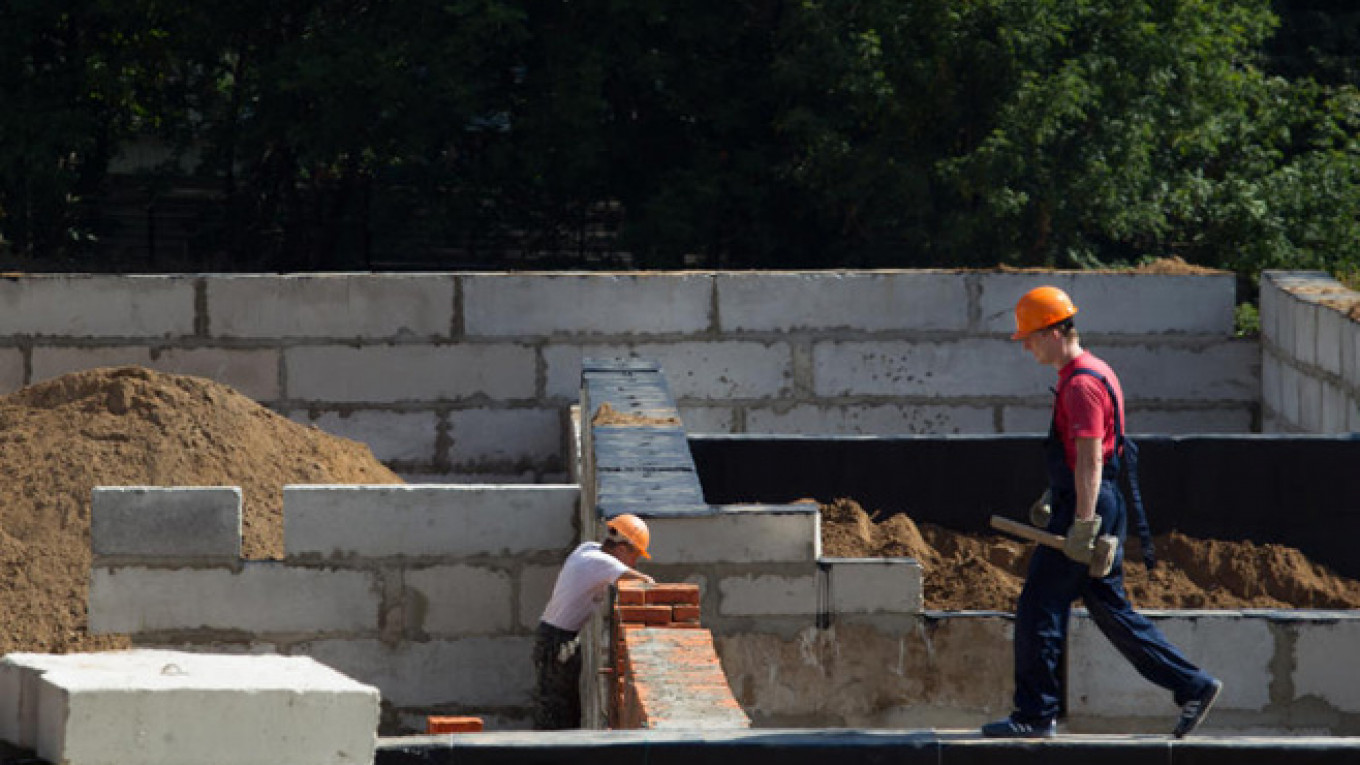Over half of migrant construction workers employed in the Moscow region are working in Russia illegally, a Moscow region migration official said Monday.
This means that around 200,000 of an estimated 370,000 migrant construction workers in the region either are not authorized to work or are in Russia illegally, Alexander Sychev, deputy head of the Moscow region branch of the Federal Migration Service, was quoted as saying in a regional government press release.
"Experience shows that every second migrant working in [the Moscow region] in the construction sector is employed illegally," Sychev said.
Moscow's construction sector has long been powered by immigrants from Central Asia, attracted to the relatively high wages they can earn in the Russian capital compared to the depressed salaries of their home countries. According to the World Bank, half of working-age men from Tajikistan are working abroad, with the vast majority of them in Russia.
Immigration from Central Asia has slowed in recent months, however, as the ruble's fall of around 40 percent to the U.S. dollar since the beginning of last year makes the salaries to be earned in Russia less appealing. The Russian government has also introduced new bureaucratic barriers that make it both harder and more expensive to receive a Russian work permit.
The head of Russia's Federal Migration Service, Konstantin Romodanovsky, said during an interview with news channel Rossia-24 in January that the number of migrants entering Russia had fallen by 70 percent year-on-year.
A Message from The Moscow Times:
Dear readers,
We are facing unprecedented challenges. Russia's Prosecutor General's Office has designated The Moscow Times as an "undesirable" organization, criminalizing our work and putting our staff at risk of prosecution. This follows our earlier unjust labeling as a "foreign agent."
These actions are direct attempts to silence independent journalism in Russia. The authorities claim our work "discredits the decisions of the Russian leadership." We see things differently: we strive to provide accurate, unbiased reporting on Russia.
We, the journalists of The Moscow Times, refuse to be silenced. But to continue our work, we need your help.
Your support, no matter how small, makes a world of difference. If you can, please support us monthly starting from just $2. It's quick to set up, and every contribution makes a significant impact.
By supporting The Moscow Times, you're defending open, independent journalism in the face of repression. Thank you for standing with us.
Remind me later.






